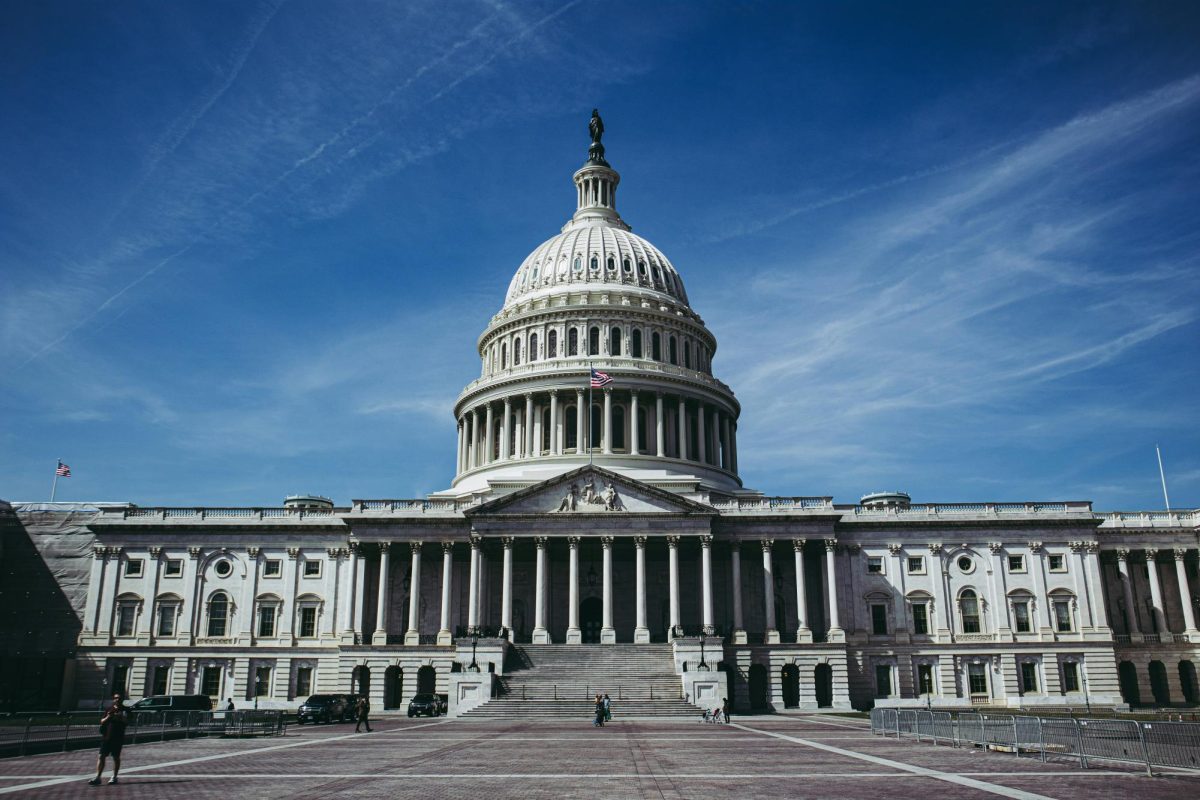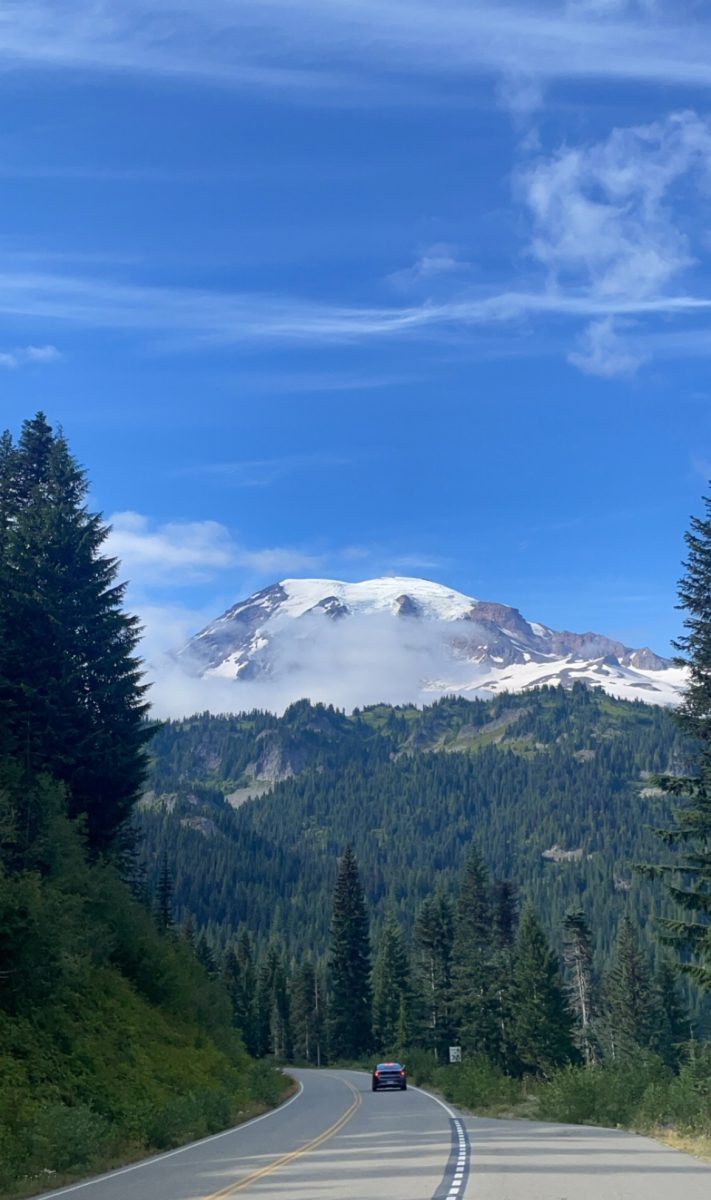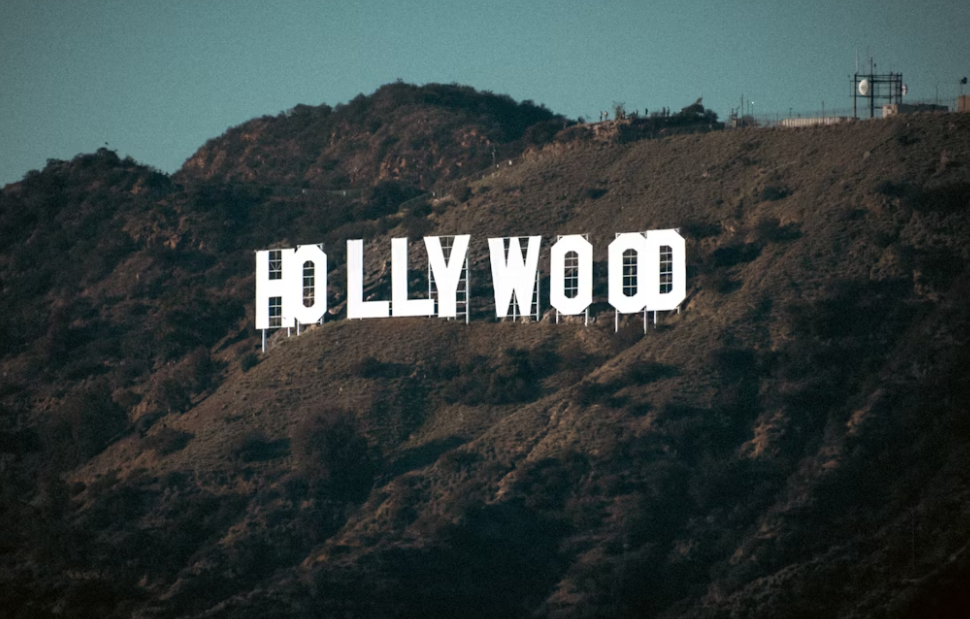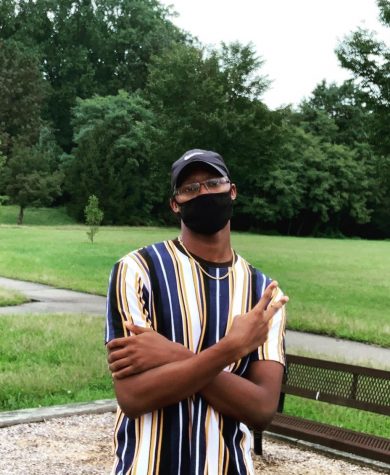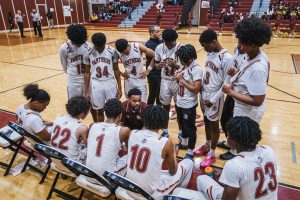Homophobia in the Black Community

All Black Lives Matter protesters hold rainbow-colored signs near a mural of George Floyd during their solidarity march with the LGBTQ community in Los Angeles.
January 26, 2021
Can you imagine living in a world where people can only see in black and white? A world where your clothes could only be in shades of black and white, with color being foreign to you.
Unfortunately, this is the world that many individuals in the black community live in today, a rigid and unchanging world that clings to tradition. Those who can look at the world as a changing, evolving, and colorful place find their very existence branded as abnormal, unnatural, and deviant. A community that looks down on these people and instead supports and defends a backwards kind of thinking can never claim true equality.
There is no place for hypocrisy in a community so dedicated to fighting bigotry and oppression. In the words of Ralph Waldo Emerson, American philosopher and poet, “What you do speaks so loud I cannot hear what you say.” The Black Lives Matter movement in 2020 has done much to bring attention to the systemic racism and oppression that has plagued the black community for generations, but it has also sparked a dialogue that looks more deeply into the challenges within the community. Billy Porter, actor and LGBTQ+ advocate, compares homophobia to the racist ideology found in white supremacists and says that the relationship between the Black community and it’s LGBTQ members is “appalling at best.” How can we stand united against racism when we still hold on to beliefs that hurt and oppress those in our community?
To better understand the problem, we need to first have a better understanding of homophobia. Homophobia is defined by Merriam-Webster as “the irrational fear of, aversion to, or discrimination against homosexuality or gay people.” After I came out to my mom, she reflected on her own actions in the past and was shocked at how homophobic she had been. She didn’t believe she was being homophobic because she didn’t go out of her way to attack gay people, but she didn’t understand that cringing when same-sex couples kiss in public counts as homophobia. She understood after I asked her this question: “Would you have reacted the same way if it was a straight couple?”
Homophobia has become so entrenched in black culture that we have normalized it into our daily lives and toxic masculinity is the root cause of the issue. Black men have tied being gay with a loss of masculinity and that, above all else, a black man has to be as masculine as possible in order to garner any respect. This idea is being passed on to the younger generations, which forces kids to internalize this sentiment and prevents them from coming up with their own minds. Nidhi, a senior at Paint Branch High School, shared her thoughts: “In today’s society, having good hygiene and caring ‘too much’ about your appearance is all it takes for someone to be ‘gay’, I don’t think I’m homophobic, but from what I see, toxic masculinity is such a prominent factor in why some people are.”
Openly gay artist, Lil Nas X, has had to deal with homophobia from people in the black community since he came out on Twitter in 2019. Down South Georgia Boys rapper Pastor Troy was particularly vocal after seeing Lil Nas’s pink leather Grammys outfit. He posted on Instagram that he was proud that his son denounced Applebee’s after seeing a commercial showing a gay couple “kissing and laughing, eating mozzarella sticks.” He continued by adding “He sees it…their agenda to take the masculinity from Men, Black Men Especially. Some may say, ‘He Making Money!!’ Rupaul do too, but I ain’t bumping his CD!!! Integrity is Priceless. Y’all Better open that 3rd Eye and let your Sons Know What Is Real…Or They Ass Gone Be Headed Down That Old Town Road Foreal!!.”
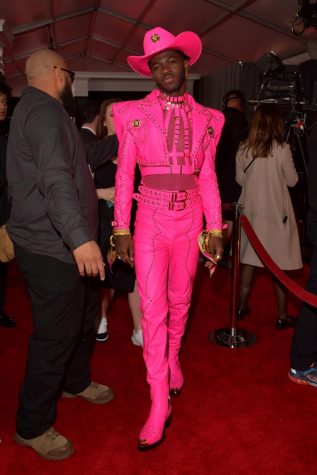
Lil Nas X responded with humor, as he usually does, writing “Damn I look good in that pic on god.” Pastor Troy is only one person, but his beliefs are shared by others in the black community. This derisive sentiment is one that is heard often by students. Fatima, a senior at Springbrook High School, shares some of the many things she’s heard from friends and family:
“You aren’t one of those spoiled white kids on TV. Know who you are. Remember your values”
“You can’t just go following whatever is trending, the ‘bi’ trend or whatever it’s called”
“They are sick in the head. There’s nothing normal about it”
“So because you wanted attention you started talking to girls”
The idea that being gay is a trend or that coming out is a way of getting attention is what some people still believe in the black community. Fatima says, “In the black community there is an overwhelming disillusion that being queer is a defect imported from the white man and that being queer is accepting colonization.” Fatima comes from a Muslim household and is faced with this ideology frequently from her parents and relatives. Hearing these words come so casually from people’s mouths is like being rejected over and over again by the people you love and care about.
The worst part is not just the verbal rejection, but also the very real possibility of physical and emotional abandonment. Many people in the LGBTQ+ community have been rejected by their parents and forced to live on the street because of homophobia. Chapin Hall at the University of Chicago reported in 2018 that LGBTQ young adults had twice the risk of reporting homelessness than their straight counterparts. This report also shows that those who identified as black or multiracial had the highest rates of homelessness. 64% were exposed to discrimination or stigma within their family, and 62% were physically harmed by others. All this to say that homophobia has very real consequences and that words and actions do matter.
The stigmas and stereotypes in the black community that contribute to the continued pain and suffering of black queer people is a problem that needs to be resolved. While we fight for black lives, we need to remember that LGBTQ lives are black lives and matter just as much. Perhaps the words of respected human rights icon Coretta Scott King says it best: “Homophobia is like racism and anti-Semitism and other forms of bigotry in that it seeks to dehumanize a large group of people, to deny their humanity, their dignity and personhood.”

